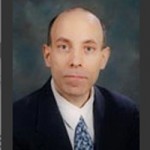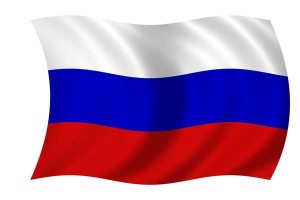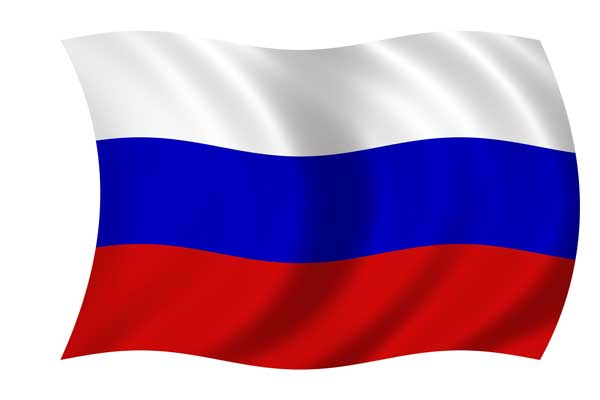
12/14/2011 – Recent Russian elections have identified several weaknesses in Russia’s political system, but not the means solve them. Russia is experiencing its own unexpected Arab Spring, though the system should survive and Prime Minister Vladimir Putin is likely to return to the presidency next year. But the Putin system that has defined Russian politics is likely to end within the next decade since its vulnerabilities cannot be addressed by the modest reforms that the leading members of the regime can support.
Even the official tallies show that a majority of Russians voted against the ruling United Russia Party in the December 4 elections. They lost substantial support among the middle class, nationalist intelligentsia, and nouveau riche, who previously rallied behind Putin as the man who saved Russia from the disorders and weaknesses of the 1990s. Moscow and other big cities saw a surge in votes for the Communists, while the liberals gained support in certain important areas, including reportedly the Russian Embassy here in Washington, which has some of the smartest diplomats and policy analysts in town. According to other sources, not a single sailor in two Russian nuclear submarines in the Arctic cast their ballot for United Russia, underlying discontent in the military despite Putin’s pledge to boost military spending.

Putin’s electorate now consists primarily of the poor, uneducated, and the North Caucasus, where the local satraps secure Central Asian like majorities of 90+% percent in return for the lavish funding they receive from the Kremlin fearful that ceasing such payments, as the Russian nationalists now demand, will see them lose control over the region to the Islamists.
There is considerable evidence that much voting fraud occurred during, before, and after December 4 and that the cheating overwhelmingly favored the ruling party, United Russia (now called the “party of crooks and thieves” by critics who accuse it of stealing votes like it steals money from the people). which unlike in previous elections was running scared.
Thanks to the modern communications technology, amateur election observers were able to make videos of blatant ballot stuffing and other electoral crimes and then post them on the Internet. In addition, Russian and foreign monitors were denied access to the polling places and the leading Russian monitoring organization, Golos, came under sustained cyber attack on voting day.
But many of the distortions occurred before voting day. President Dmitry Medvedev has long attacked the “legal nihilism” underpinning corruption and the lack of the rule of law in Russia. This phenomenon has been very evident in Russian politics even during his four years in office, and especially in recent months.
For example, the Ministry of Justice refused to register for the ballot of nine of the political parties most hostile to the regime, such as Boris Nemtsov’s People’s Freedom Party. The head of the electoral commission was a blatant partisan of United Russia. And provincial and local officials instructed public employees to back Kremlin-approved candidates.
Some of the ruling party’s backers might have artificially boosted the Russian Communist Party’s totals since Putin would like nothing better than to depict this upcoming March’s presidential race as a contest between him and perennial second-place finisher Gennady Zyuganov, who has led the Party since Russia’s independence two decades ago. Meanwhile, perennial Liberal Democratic Party (sic) leader Vladimir Zhirinovsky can siphon some votes away from more radical anti-Kremlin nationalists like popular firebrand Alexei Navalny, a lawyer who has moved from denouncing Russian bureaucrats for financial fraud to denouncing the ruling party for electoral fraud.
In any case, the electoral laws cushioned the magnitude of Putin’s setback. The United Russia captured a majority of the Duma seats after the votes of the parties that failed to pass the seven percent threshold (in itself an unusually high barrier for a proportional representation system) needed to receive seats in parliament. These votes were then distributed to those whose initial totals indicated they exceeded that hurdle. In the new Duma, United Russia will have 238 seats (a loss of 77 seats). The Communist Party of the Russian Federation will have 92 seats, the leftist A Just Russia will have 64 seats, and the Liberal Democratic Party of Russia will hold 56 seats.
The Kremlin, as it has done for the past 20 years, can bribe and otherwise secure legislative support from Just Russia, the Liberal Democrats, and other pliant political parties and ambitious or covetous faction members by applying the numerous administrative resources at his disposal. The president can and also does simply make decisions by decree or by bypassing the Duma, whose members constantly complain they know little about the activities of such key institutions as the armed forces and the security services.
At present, most Russians still probably want the regime-led reform rather than regime change. Civil society may be more active than in recent years, and the protests have attracted an unexpectedly large number of participants and have been surprisingly geographically dispersed. Putin’s aura of invincibility has cracked (not good for his tough guy image) and may yet shatter, but the regime’s opponents lack a single leader, party or even core idea around which to rally. They naturally find it easier to unite against what they oppose but will need a more positive agenda to make further progress. For now, the opposition is just as divided as the elite, with the communists, nationalists, and liberals setting aside their differences for the moment but probably not for long, especially after the regime starts inciting them against each other.
Still, the Arab Spring illustrates how resisting reforms and denying people opportunities to express peaceful even political opposition can lead to mass social protests that demand a change of regime rather than merely its policies. Perceptions of widespread electoral fraud have led to colored revolutions in several other former Soviet republics. The cases of Georgia and Ukraine demonstrate that authoritarian regimes are vulnerable when electoral fraud, political manipulation, and economic corruption grow so extensive that they undermine the regime’s legitimacy.
Despite some high-profile reform initiatives during the last few years under President Dmitri Medvedev, Russia’s quasi-authoritarian political system has continued, though power is now awkwardly shared between Medvedev and (mostly) Putin rather than concentrated solely in the office of the presidency. This problem will be solved when Putin, who faces a strong opposition candidate or party, returns to the presidency in a few months and consolidates political power in his person.
Even so, the larger problem is that system still lacks a means of allocating and transferring political power that is widely seen as legitimate. The practice of Putin’s exchanging jobs as he desires and changing key personnel without popular consultation breeds popular alienation cynicism, and occasionally anger. In addition, it reinforces the problem that Russia’s political institutions, with the exception of the presidency, are undeveloped and therefore unable to establish an effective system of political checks and balances.
Under Putin and Medvedev, the prime minister and the president have dominated decision making, coerced the legislature into serving as a highly compliant body under the overwhelming control of pro-Kremlin parties, and reigned in the autonomy of Russia’s regions, media, corporations, and other key political and economic actors. Pro-Kremlin political parties, receiving substantial Kremlin support, dominate the political landscape, while other political movements—nationalists, communists, and liberals—have been marginalized.
The government pursues modest economic and political liberalization to mitigate pressures for more comprehensive political and economic reforms. The political authorities tolerate groups that have non-political agendas and mobilize to address specific problems, but repress groups, by manipulation when possible, but with force if necessary, that seek to overturn the existing political system through mass action.
Media controls are scaled, with the most extensive government controls applied to the most widely used communication sources, such as television. The Internet, specialized journals, and other lesser used media are often manipulated rather than controlled. The government hires pro-regime writers and bloggers to communicate its messages. Russian officials are aware that excessive Internet controls can inhibit economic growth by denying business and public decision-makers access to important information. Restrictions on political expression deny the authorities a feedback mechanism for identifying and correcting flawed policies. Nonetheless, the ability of people to discredit the fairness of the ballot so easily by posting embarrassing videos will surely tempt the Kremlin’s team to try to restrict its use more extensively in the future.
Even so, many of the protesters are motivated most by this feeling of disempowerment, that their votes do not matter, and by a loss of dignity, a sense that they do not matter to those who rule in their name. The protesters want their leaders to listen to them. But even if they are heard, the structural constraints of Russia’s current political and economic system will make it difficult for the regime to meet the protesters’ demands.


